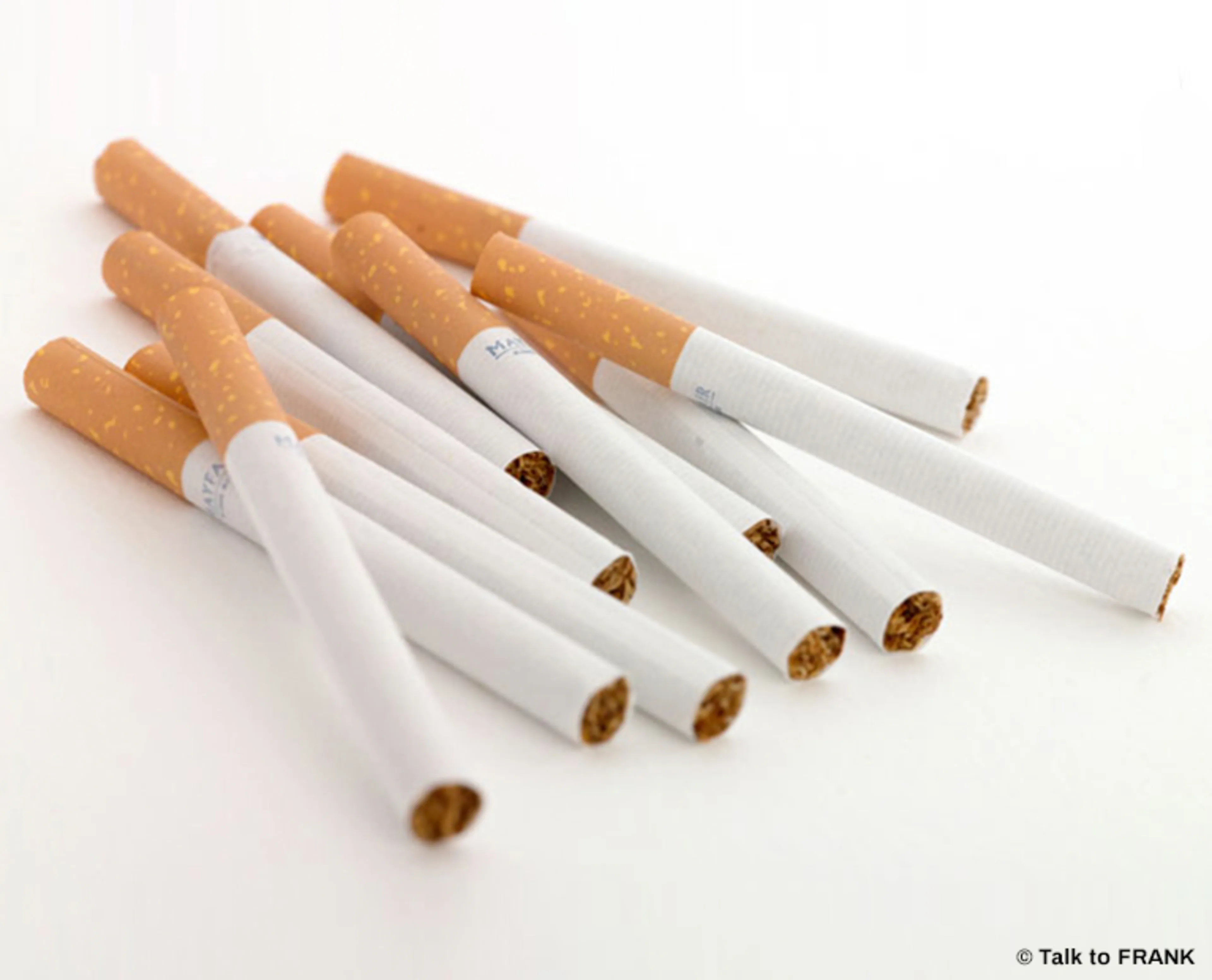
Nicotine
Nicotine is a stimulant found in tobacco and most vaping products, as well as some other products including medicines to help people stop smoking.
Also called:
- Nic
What does it look like?
Nicotine is a colourless, oily substance found in the tobacco plant.
What does it taste/smell like?
It has a bitter taste and can cause a burning sensation in the mouth and throat. Chemicals and flavours are added to products that have nicotine to reduce these effects.
People consume nicotine in:
Smoked tobacco (cigarettes, cigars, pipe tobacco, shisha/waterpipe)Vaping products (vapes and e-liquids)Smokeless tobacco, including chewing tobacco and heated tobaccoNicotine replacement therapy (NRT) products such as patches and gumOther products such as nicotine pouches
How does it make you feel?
The effects of nicotine depend on how you take it, how much you take and the strength of the nicotine in the product. Smoking cigarettes is the fastest way that your body absorbs nicotine, and it will have the strongest effects on your brain.
When nicotine is inhaled, the buzz you feel is the release of adrenaline which stimulates the body. It causes your blood pressure and heart rate to increase, and makes you breathe faster. Nicotine also activates areas of your brain that are involved in producing feelings of pleasure and reward. If you aren’t used to taking nicotine, you might feel:
DizzinessHeadacheRacing heartNausea / possible vomitingStomach crampsWeakness
People who use nicotine regularly build up a tolerance to the immediate short-term effects so after a while you might feel:
Mild stimulationIncreased ability to concentrateRelaxation- Temporary reduction in the urge to smoke (or to vape) / not wanting to smoke as often
How long it takes for nicotine to kick in and the time its effects last depend on how you take it. In tobacco smoke, nicotine reaches the brain within seconds and its effects last from around 30 minutes to a few hours.
Physical health risks
Nicotine is an addictive substance which can be hard to stop using once you’ve started. The way you take it makes a difference to the health risks you are exposing yourself to. Smoking gives you nicotine by burning tobacco, which creates many harmful toxins that can cause serious illnesses including cancer, lung disease, heart disease and stroke. Vaping gives you nicotine by heating an e-liquid, which is a much less harmful way. However vaping isn’t harmless and it is only recommended to help adults stop smoking.
Also, nicotine may be more risky for young people than for adults. There’s some evidence that in adolescence the brain is more sensitive to its effects.
Nicotine is a toxin and poisoning can happen if larger doses are taken. Symptoms are usually quite mild including nausea and vomiting, headaches and stomach pains, but in more severe cases it can lead to convulsions, depressed breathing and heartbeat, and even death. Serious nicotine poisonings are rare.
Is it dangerous to mix with other drugs?
Mixing drugs is always risky but some mixtures are more dangerous than others.
What happens if I mix Nicotine and
Can you get addicted?
Nicotine is addictive, particularly when it’s in smoked tobacco. Some people can get addicted to nicotine after smoking just a few cigarettes. Vaping nicotine is likely to be less addictive than smoking, however you can still become dependent on vapes.
Giving up nicotine can be difficult because the body has to get used to functioning without it. With smoking, withdrawal symptoms usually start within 2-3 hours after your last cigarette. They can include cravings, irritability, anxiety, trouble concentrating, headaches and other mental and physical symptoms. The symptoms may last from a few days to a few weeks. Withdrawal from vaping may bring fewer and less intense symptoms than from quitting smoking, but it is still likely to have unpleasant mental and physical side-effects.
Class: Legal
Additional law details
In the UK it is illegal to sell tobacco products and nicotine vaping products to someone under the age of 18, or for adults to buy these products for them.
Nicotine replacement therapy products, licensed as medicines (such as patches, gum and lozenges) can be sold over the counter or prescribed on the NHS to anyone over the age of 12.
Was this information useful?